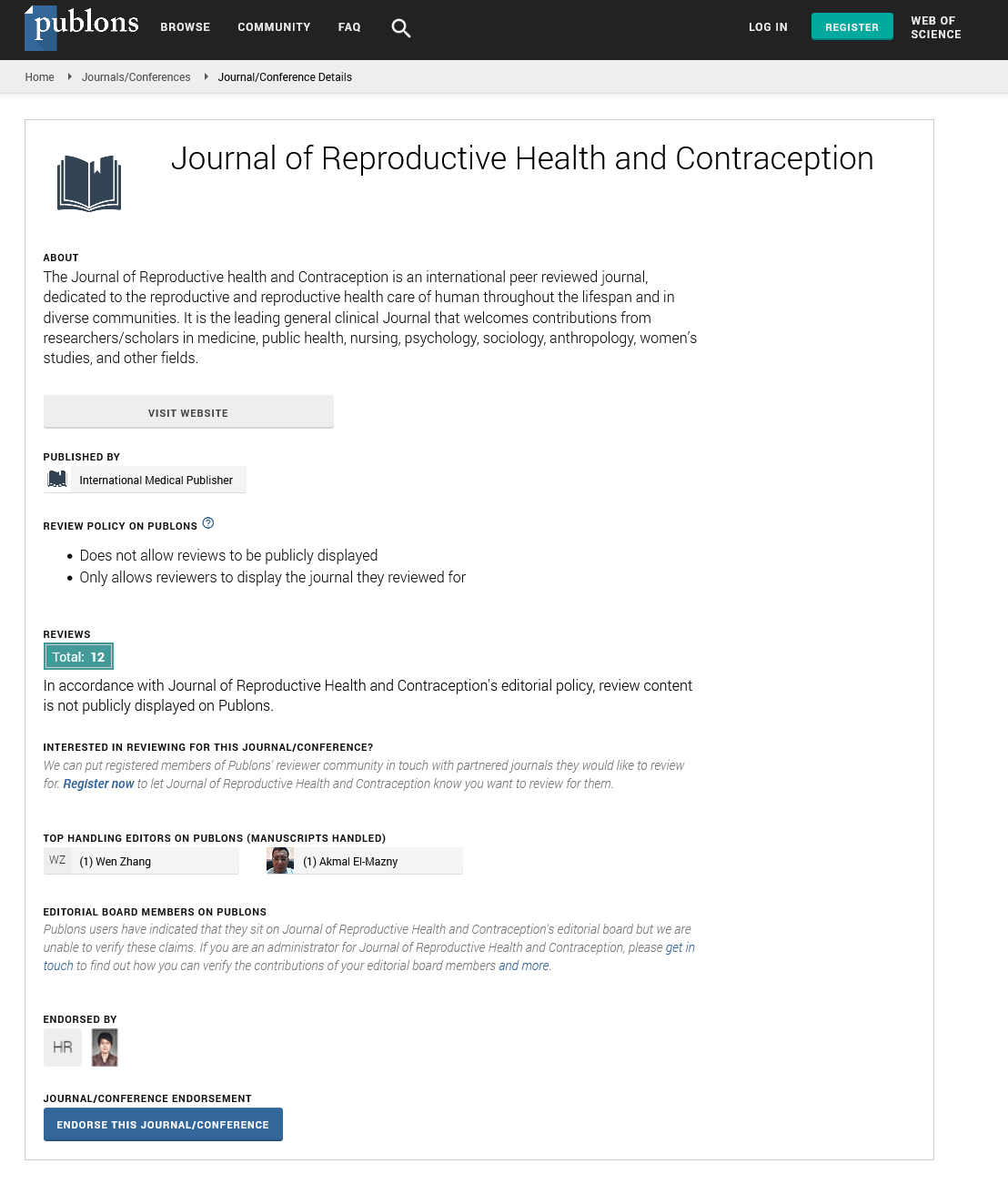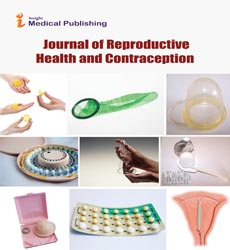Abstract
Contraceptive Awareness and Prevalence Rates among Women in a Nigerian
Background
Contraception awareness and prevalence rates are key indicators of a woman and population’s reproductive health. A regular assessment of contraceptive awareness and prevalence rate is imperative in developing countries; regions with high rates of unintended pregnancy and unsafe abortion which aims at identifying potential spheres of intervention.
Aim
We assessed the contraceptive awareness and prevalence rates among women in Lagos, Nigeria.
Materials and Methods
This was a prospective cross-sectional population based survey in which 16214 consenting women, aged 15 to 45 years of age, from randomly selected households and communities across the 20 local government areas (LGA) of Lagos state, Nigeria. They had in-depth interview with the aid of an interviewer administered structured questionnaire to assess their knowledge and use of contraception. Data obtained were presented in frequency and proportions.
Findings
The overall contraceptive prevalence rate was 30.2% (95% CI: 29.3 - 31.2). Pills were the commonly mentioned method by 65.9% of the women followed by injectables (64%). None of the women indicated awareness of male sterilization. Friends, health care workers and neighbours were the leading sources of information on options of contraceptive methods. Contraceptive prevalence rates were significantly higher in educated women.
Conclusion
Awareness of contraceptive options is high among Nigerian women within the reproductive age group but acknowledgement rate of male sterilization as an option is almost non-existent.
Author(s): Abidoye Gbadegesin, Ayokunle Olumodeji, Yusuf Oshodi, Taiwo Kuye-Kuku, Haleema F. Olalere
Abstract | Full-Text | PDF
Share this

Google scholar citation report
Citations : 201
Journal of Reproductive Health and Contraception received 201 citations as per google scholar report
Journal of Reproductive Health and Contraception peer review process verified at publons
Abstracted/Indexed in
- Google Scholar
- China National Knowledge Infrastructure (CNKI)
- WorldCat
- Publons
Open Access Journals
- Aquaculture & Veterinary Science
- Chemistry & Chemical Sciences
- Clinical Sciences
- Engineering
- General Science
- Genetics & Molecular Biology
- Health Care & Nursing
- Immunology & Microbiology
- Materials Science
- Mathematics & Physics
- Medical Sciences
- Neurology & Psychiatry
- Oncology & Cancer Science
- Pharmaceutical Sciences


